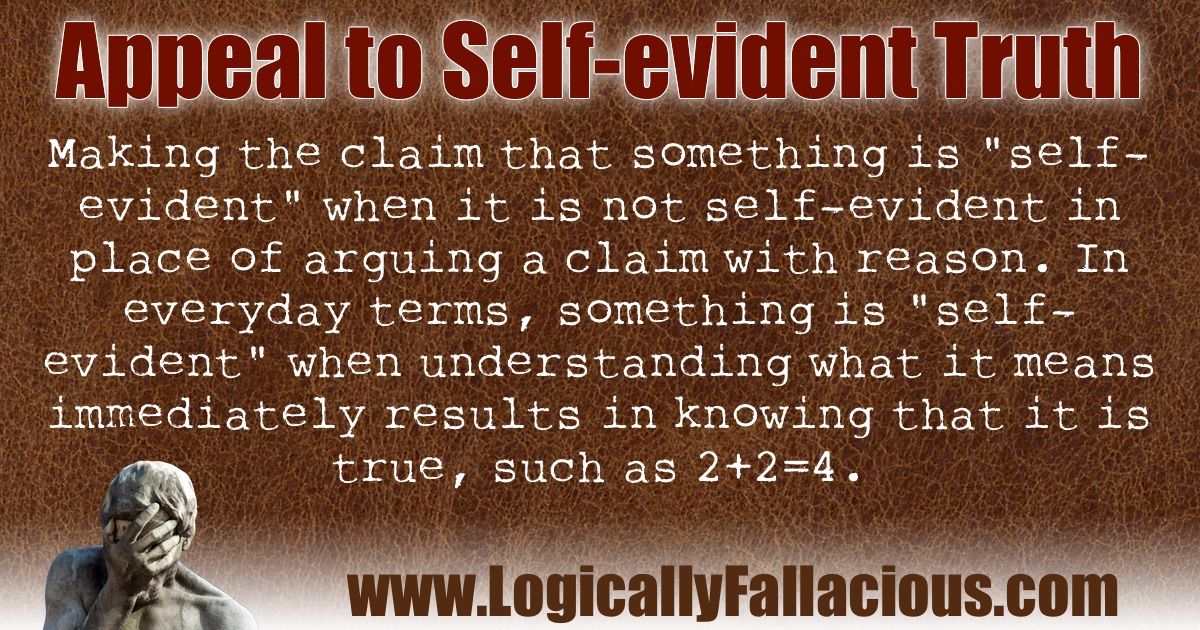Appeal to Self-evident Truth
Description: Making the claim that something is "self-evident" when it is not self-evident in place of arguing a claim with reason. In everyday terms, something is "self-evident" when understanding what it means immediately results in knowing that it is true, such as 2+2=4. The concept of self-evidence is contentions and argued among philosophers based on their ideas of epistemology. This means that what is "self-evident" to one person is not necessarily self-evident to another. However, some ideas are clearly self-evident and some are not.
Logical Form:
Person 1 claims Y without evidence.
Person 2 asks for evidence.
Person 1 claims that Y is self-evident.
Example #1:
Richie: Lord Xylon is the one true ruler of the universe.
Toby: Why do you think that?
Richie: It is self-evident.
Explanation: People often confuse their own subjective feelings and interpretations with self-evidence. Richie may believe that Lord Xylon is the one true ruler of the universe, but his belief cannot be used in place of evidence.
Example #2:
Sara: No human should ever kill another human being.
Dottie: Why not?
Sara: It's self-evident.
Explanation: The fallacy is in the implied claim that the argument needs no evidence or explanation because it is "self-evident."
Exception: This fallacy depends on the claim of “self-evidence” not being self-evident. A claim that it reasonably self-evident would not be fallacious:
Richie: I exist.
Toby: Why do you think that?
Richie: It is self-evident.
Tip: If you can't explain something, that doesn't mean you are dealing with something that is self-evident; it could just be your failure to explain something.

References:
This a logical fallacy frequently used on the Internet. No academic sources could be found. For the concept of self-evidence, the following reference was used:
Kelly, T. (2016). Evidence. In E. N. Zalta (Ed.), The Stanford Encyclopedia of Philosophy (Winter 2016). Metaphysics Research Lab, Stanford University. Retrieved from https://plato.stanford.edu/archives/win2016/entries/evidence/